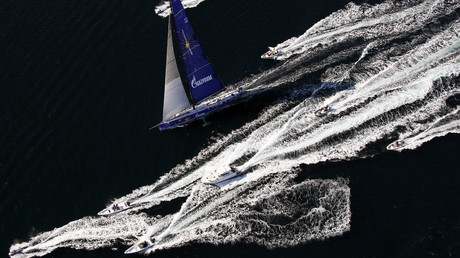The bank said it stood ready to provide £250 billion to support the functioning of markets. The regulator promised to provide substantial liquidity in foreign currency, if required.
“The Bank of England is monitoring developments closely,” said a statement released on Friday after the referendum results caused a 10 percent fall in the value of the pound and a slump in government bond yields to a new record low.
The global equity and currency markets plunged dramatically after Britain voted for leaving the European Union.
The Bank of England previously said that the decision to leave the EU, which takes almost half of UK exports, could cause a financial blow to the economy. It also warned Brexit could push up inflation due to the hit on the sterling, complicating any decision to cut interest rates.
Bank governor Mark Carney said the best contribution of the regulator to this process is to continue to pursue relentlessly the responsibilities for monetary and financial stability.
“There will be no initial change in the way our people can travel, in the way our goods can move or the way our services can be sold,” he said, stressing that it would take some time for Britain to establish new relationships with Europe and the rest of the world. The governor expects temporary market and economic volatility as the process extends.
The regulator said it had been ready for the result. “It has undertaken extensive contingency planning and is working closely with Her Majesty’s Treasury, other domestic authorities and overseas central banks,” said Carney, adding that the capital requirements of UK’s largest banks were currently ten times higher than before the 2008 financial crisis.
The BoE stress tested the banks against scenarios more serious than the UK currently faces. As a result, the country’s lenders have raised over £130 billion in capital and have more than £600 billion in high quality liquid assets, according to the central bank.
“In the future we will not hesitate to take any additional measures required to meet our responsibilities as the United Kingdom moves forward,” the Bank of England announced.
The regulator appeared to calm the markets slightly. The FTSE 100 Index was down five percent as of 9:00am GMT after plunging nearly eight percent at the start of trading.
Article source: https://www.rt.com/business/348166-bank-england-support-markets/?utm_source=rss&utm_medium=rss&utm_campaign=RSS
